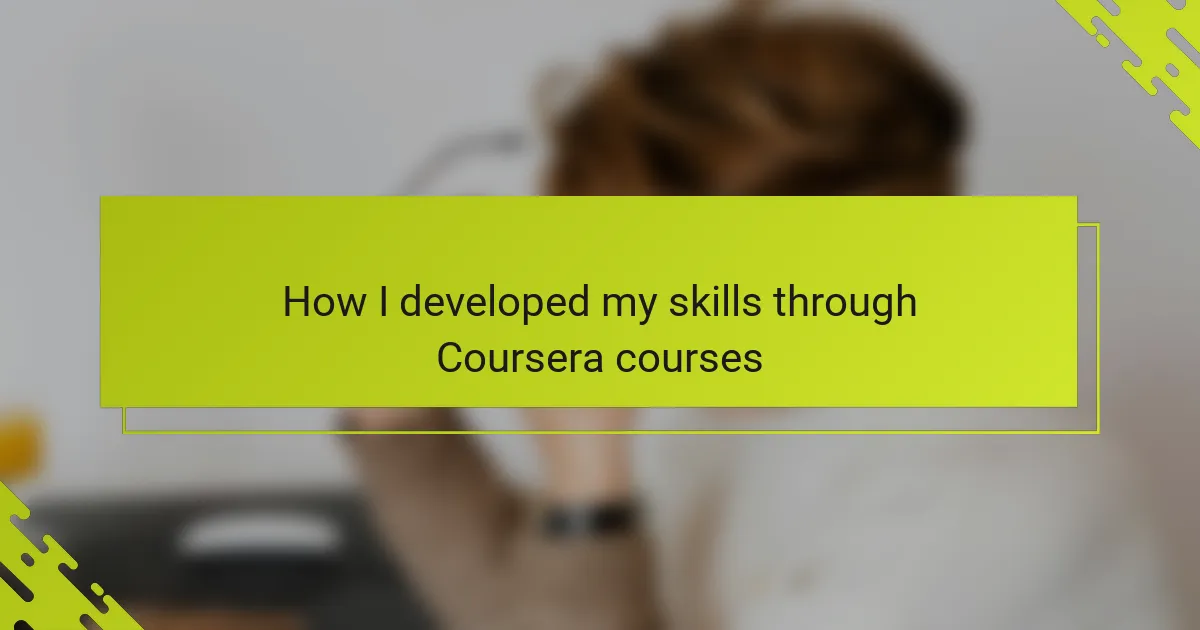Key takeaways
- Queer women culture is a dynamic blend of resilience, creativity, and community, allowing for personal stories and collective narratives.
- Skill development empowers individuals to reclaim confidence and share their unique stories, serving as a form of resistance.
- Choosing relevant courses enhances personal learning experiences, aligning educational content with individual identities and aspirations.
- Sharing knowledge within communities fosters deeper understanding and strengthens bonds, turning education into an act of care and activism.
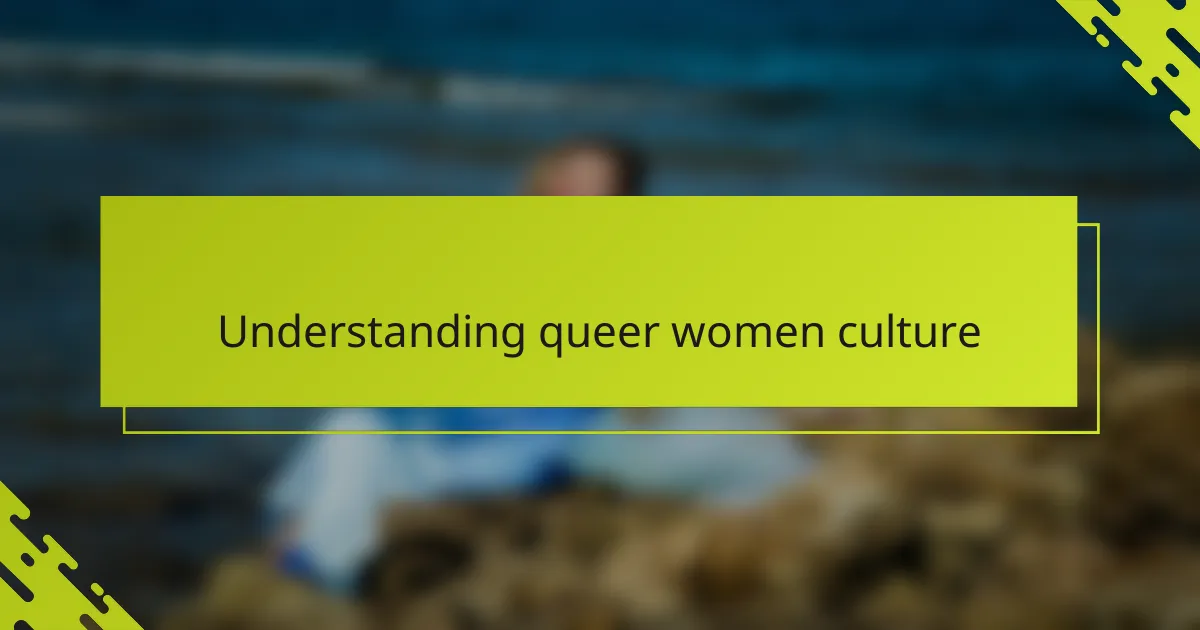
Understanding Queer Women Culture
Understanding queer women culture means recognizing a rich tapestry of identities, experiences, and expressions that often defy traditional labels. I’ve felt the importance of this firsthand—there’s a unique blend of resilience, creativity, and community that shapes this culture in ways that many outside it might overlook.
Have you ever wondered how much history and emotion are woven into the everyday lives of queer women? From shared struggles to vibrant celebrations, the culture is a living narrative that invites deeper empathy and connection. It’s not just about identity; it’s about belonging to a story larger than oneself.
What strikes me most is how queer women culture continuously evolves, blending activism, art, and intimacy in ways that challenge mainstream norms. This dynamic nature keeps the culture alive and powerful, reminding me that understanding it requires openness and a willingness to learn beyond surface assumptions.
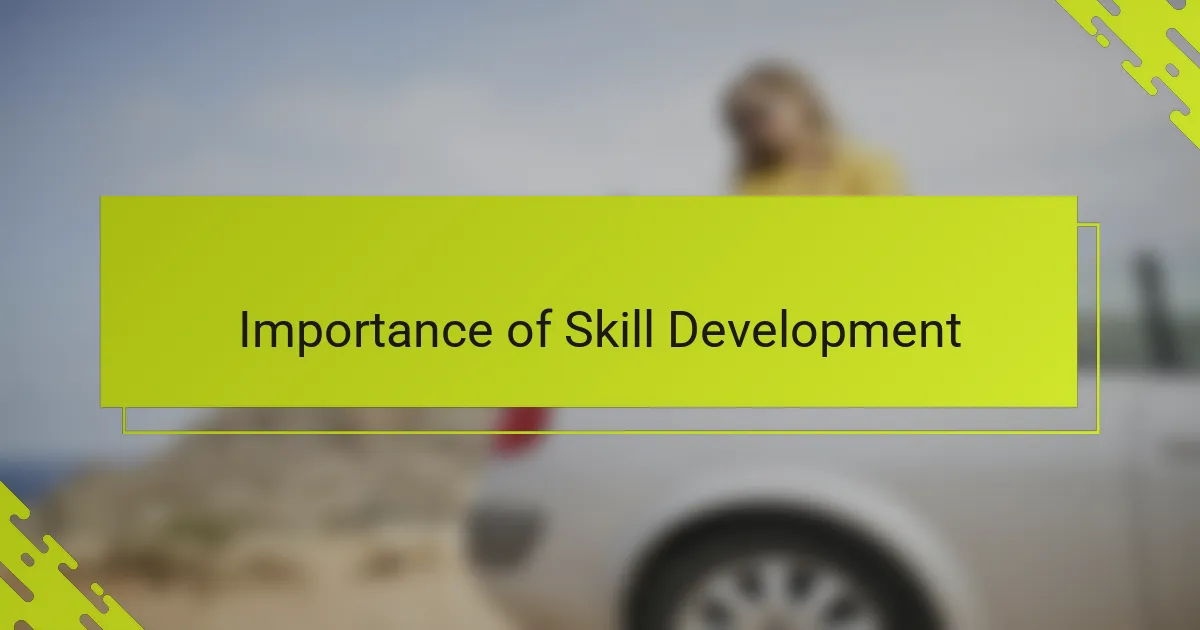
Importance of Skill Development
Have you ever paused to consider how developing new skills can transform not just your career, but your sense of self? For me, skill development has been a way to reclaim confidence and forge new paths, especially in spaces where queer women’s voices are often sidelined.
Building skills isn’t just about ticking boxes; it’s about growth that feels deeply personal. Learning something new often sparks moments of discovery—like realizing I’m capable of more than I thought, or seeing opportunities I hadn’t noticed before.
Why does this matter so much in our culture? Because skills empower us to tell our own stories and take control of our narratives. It’s a form of resistance and self-affirmation that I’ve found invaluable on my own journey.
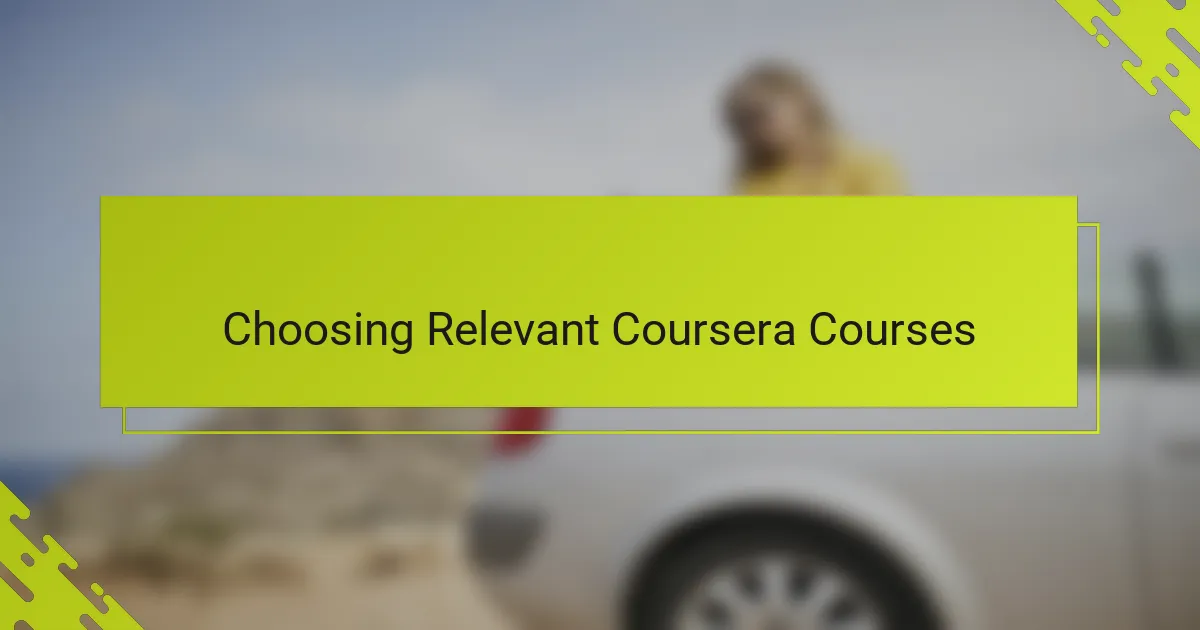
Choosing Relevant Coursera Courses
Choosing the right Coursera courses felt like navigating a vast landscape of possibilities, and I quickly realized that relevance was everything. Why spend hours on a course that doesn’t speak to your goals or values? For me, focusing on topics that aligned with queer women’s experiences made the learning more meaningful and engaging.
I remember hesitating before selecting courses, wondering if they would truly resonate with my journey. Then I found classes that explored social justice, gender studies, and creative expression—subjects that connected with both my identity and aspirations. That alignment kept me motivated even when the work got tough.
Isn’t it amazing how a well-chosen course can feel like a conversation with a mentor who gets you? When the material reflects what matters most to you, learning becomes an act of empowerment—and suddenly, you’re not just acquiring skills; you’re nurturing your whole self.
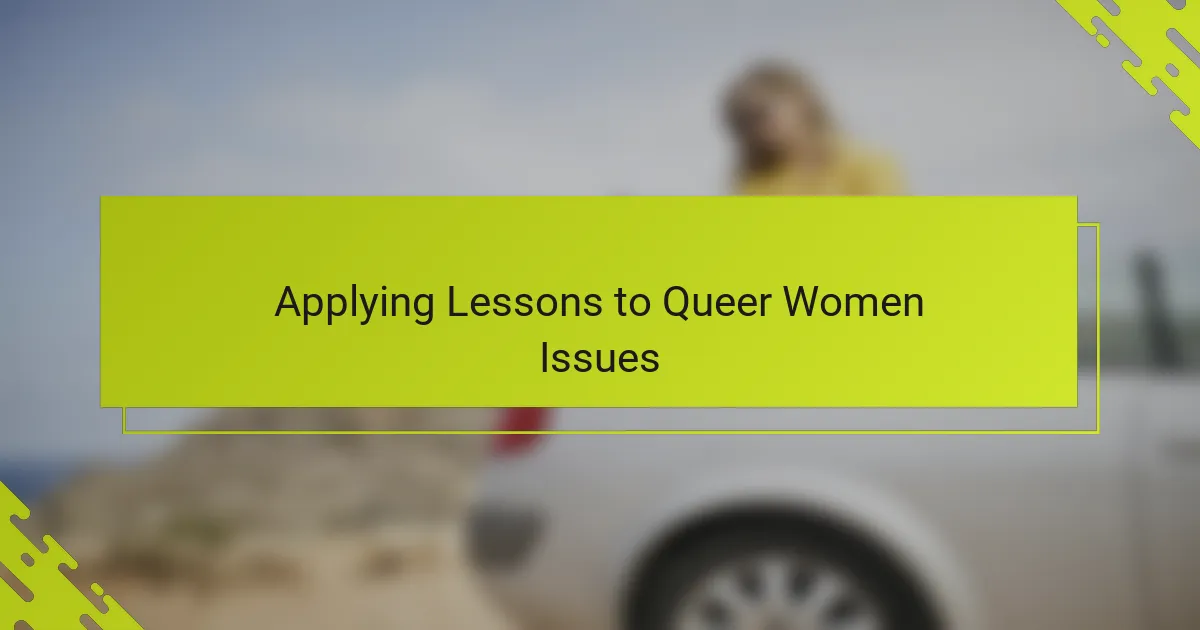
Applying Lessons to Queer Women Issues
Applying what I learned from Coursera to queer women’s issues felt like bridging two worlds that often don’t speak enough to each other. For example, courses on social justice sharpened my ability to analyze systemic barriers affecting queer women, making me more aware of how policy and culture intersect in ways that impact daily lives.
Have you ever noticed how theory can sometimes feel abstract until you see it reflected in real stories? When I applied lessons from gender studies to community organizing, it wasn’t just academic anymore—it became a toolkit for advocating more effectively and compassionately within queer spaces.
What I found most rewarding was turning abstract ideas into practical action. Whether facilitating discussions or creating content that lifts queer women’s voices, the courses helped me transform knowledge into tangible support, reinforcing that education can be a form of activism rooted in empathy and understanding.
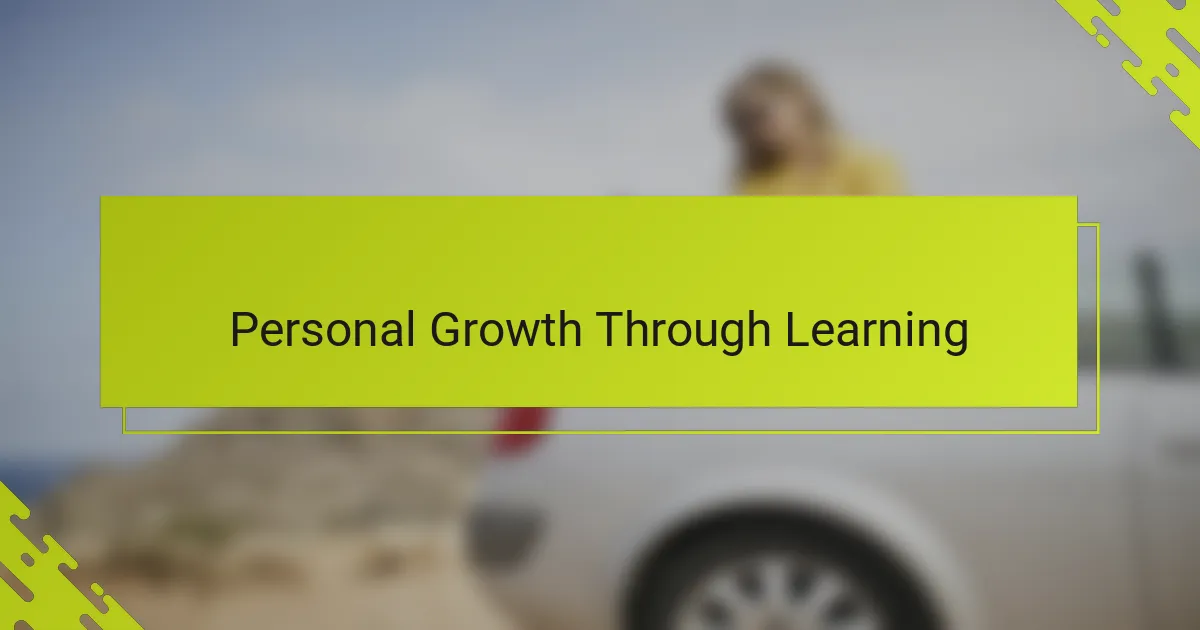
Personal Growth Through Learning
Learning through Coursera wasn’t just about gaining certificates for me; it became a journey of personal transformation. Have you ever felt that surge of confidence when mastering a tough concept? That feeling stayed with me long after the screen dimmed.
Sometimes, the most unexpected courses challenged my assumptions and expanded my worldview. I remember one moment when a lesson made me see my own potential in a new light—it was like unlocking a door I hadn’t known was there.
Isn’t personal growth often tied to stepping outside comfort zones? For me, each course nudged me to embrace curiosity and resilience, reminding me that learning is as much about evolving as it is about acquiring knowledge.
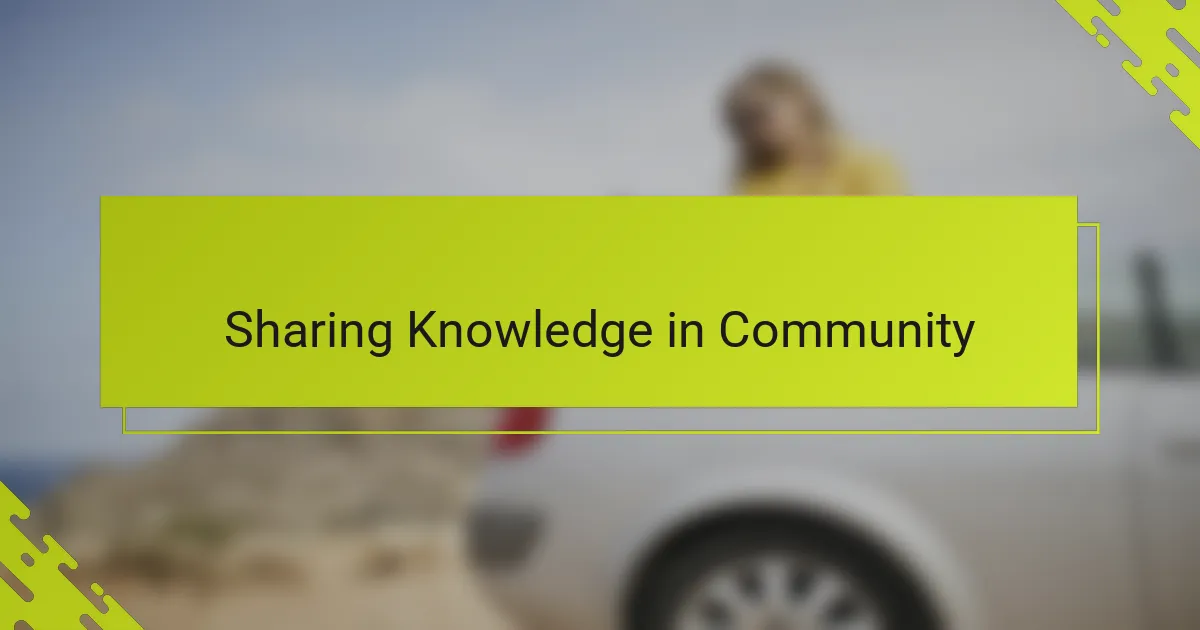
Sharing Knowledge in Community
Sharing knowledge within a community holds a special power that I’ve witnessed firsthand. When I shared insights from my Coursera courses with friends and peers, it sparked conversations that deepened our collective understanding and strengthened our bonds. Have you ever noticed how teaching others can solidify your own learning while creating spaces where everyone grows together?
I recall organizing a small discussion group where we unpacked complex topics from our courses, turning abstract theories into relatable stories from our lives. These moments of exchange weren’t just educational—they felt like acts of care, weaving knowledge into the fabric of our shared culture. It reminded me that learning becomes truly alive when it moves beyond the screen and into community hearts.
Isn’t it incredible how sharing even a single idea can ripple outward, inspiring curiosity and confidence in others? Through these exchanges, I found a renewed sense of responsibility—not just to my own growth, but to nurturing the collective wisdom and resilience that queer women communities thrive on.
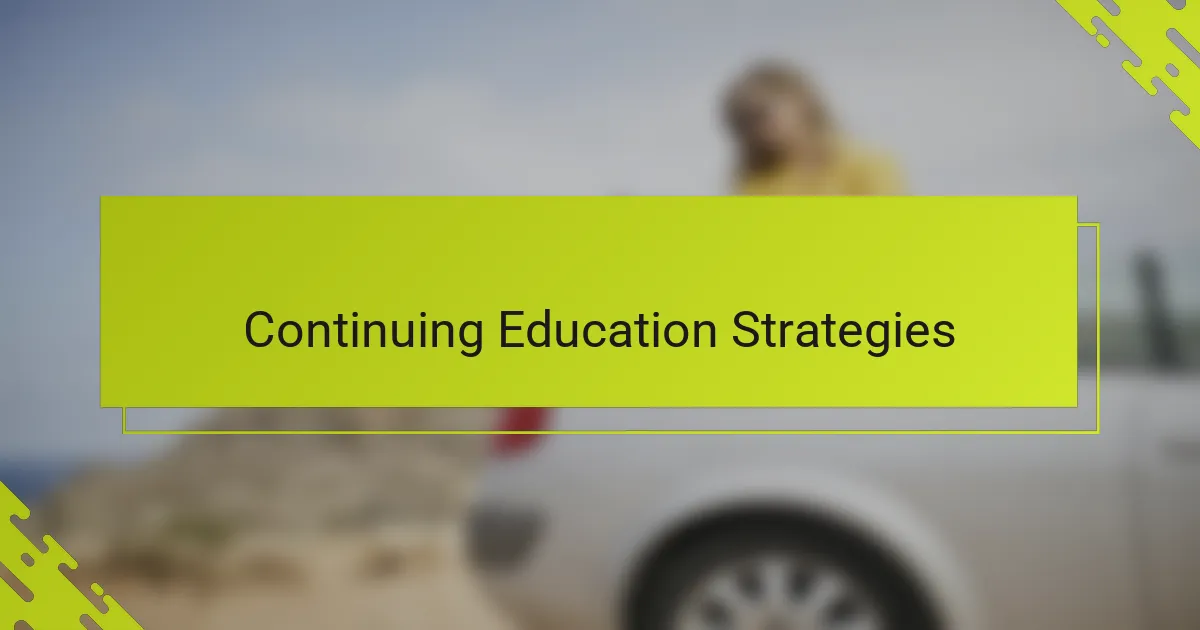
Continuing Education Strategies
Continuing education requires more than just signing up for courses; it’s about creating a strategy that fits your life and learning style. Have you ever tried juggling work, community, and study all at once? Finding a steady rhythm—like dedicating just 30 minutes a day consistently—made all the difference for me.
I found that mixing different types of learning helped me stay engaged and retain information better. For example, combining video lectures with hands-on projects and reflective journaling turned the abstract into something tangible and personal. This approach made the learning feel less like a chore and more like an unfolding conversation with myself.
Isn’t it empowering to take control of your own education, especially when traditional paths don’t always include queer women’s perspectives? I made sure to set clear goals and check in on my progress regularly, which kept me motivated and reminded me why the effort mattered—in both my personal growth and my cultural understanding.
